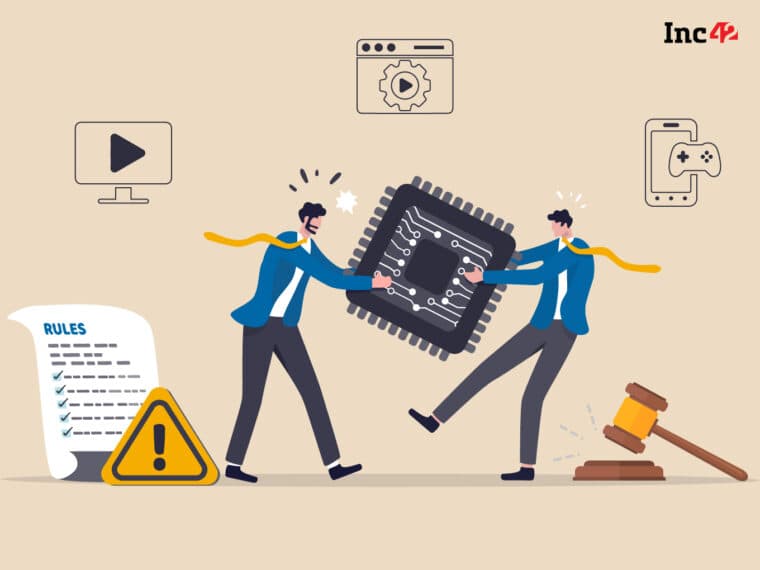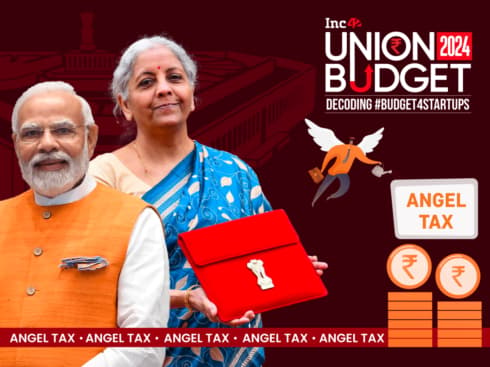
The Draft Telecom Bill 2022 applies to startups, notably those in digital and internet-based sectors, potentially treating them on par with telcos
Startups may be required to procure licences, pay licence fees, and undertake KYC of users to operate legally
Unfettered government powers of surveillance, mandatory information sharing, de-encryption may create operational hurdles for startups
Startups operating in sectors such as content streaming, social media, ecommerce, cloud services, and many others may soon be regulated as part of the telecom sector.
Soon, all entities that rely on the internet could be operating under the same regulations as telecom companies. They will be subject to licences, fees, compliance requirements like mandatory KYC requirements and harsh fines.
How you may ask?
In an attempt to overhaul the country’s telecom regulatory framework, the Government of India has released the draft Indian Telecommunication Bill, 2022 (Bill). The Bill, which aims to replace the Indian Telegraph Act, 1885, the Indian Wireless Telegraphy Act, 1933, and the Telegraph Wires (Unlawful Possession) Act, 1950, was released by the government for public comment on September 21.
The move was intended to create a modern and future-ready regulatory framework, but in doing so it has raised a number of concerns.
Many experts have opined that the Government, through the Department of Telecommunications (DoT), has failed in its intentions and instead may end up adversely affecting India’s digital economy.
Here is a glimpse into how the Bill’s provisions actually affect the Indian startup ecosystem:
Treatment On Par With Telcos
Key terms like “telecommunication services”, “telecommunications”, and “message” have been defined broadly and ambiguously. The confusion is compounded by the fact that the term “communication” is not explained anywhere in the proposed legislation.
When these terms are read together with the main text, it is difficult to imagine any digital business/ service that will not be categorised as a telecommunications service.
Additionally, the government retains the authority to designate any service as a “telecommunication service” and include that service within the regulatory ambit of the Bill.
Generally, the definition of “telecommunication service” is wider than what currently exists in Indian law — it includes internet-based services, emails, OTT, voice, video and data communication, and interpersonal communications services, along with broadcasting, internet and broadband, fixed and mobile services, and satellite-based communications.
This is especially concerning for internet enabled startups — who do not set up telecommunications networks or provide telecom services (such as mobile access, internet, satellite connectivity) but only provide content or services over the telecom networks/services provided by telcos.
Entities which are covered in the regulatory ambit of this bill will face the following challenges:
Barriers To Entry
Startups may be required to get licences or permissions to offer their services under the Bill.
Often, the grant of such licences is subject to fees. This adds to the compliance burden and operating expenses of such entities. In turn, these licence fees are passed on to the customers, increasing the cost of services without any improvements to their quality. This will have a disproportionately negative impact on new players who may find it difficult to successfully compete with more established or better-funded rivals.
Failing to get a licence exposes companies to hefty fines, jail time for their employees, and civil penalties.
OTT communication services, payment gateways, cloud and telephony platforms form the foundations of the digital economy – they are also called ‘digital infrastructure’ — on which other startups build/ develop their applications. A licensing and fees regime will increase the cost of doing business for these startups as well.
Finally, licensing requirements give the government arbitrary authority on market entry of new players. Regulatory history from the days of licence-permit raj (pre-1991 reforms) demonstrates how this can stifle innovation and growth of businesses.
India is one of the fastest growing digital economies in the world, and imposition of this regulatory burden will hurt it.
Customer Identification And Consent Requirements For Customer Communication
The Bill requires entities to “unequivocally” identify users of their services — placing a significant hurdle on the ability of startups to scale quickly. For every user acquired, startups have to verify identities, collect and store KYC data safely. This increases the cost of customer acquisition and makes achieving profitability more difficult.
Furthermore, in an effort to protect users from spam and promotional messages, the government will prescribe new standards for these types of communications. However, the definition of these “specified messages” is so broad that it could even include in-app and push notifications. This could mean that almost every customer-facing app might be required to re-work how they seek customer consent for these types of notifications.
Arbitrary Powers Of Government To Determine Standards
The Bill empowers the central government to unilaterally set standards for telecommunication equipment/services/network/infrastructure. With the inclusion of the term ‘software’ as part of the definition of ‘telecommunication equipment’, the government can set standards for software as well.
The exercise of these powers can lead to various issues for startups, including:
- Require them to modify operations, re-architect systems and incur costs to comply with these standards
- Incur additional costs for product development and ensuring interoperability, affecting their ability to expand across borders
Face A Complex Web Of Regulations And Compliance Requirements
Internet-based service providers are already subjected to the Information Technology Act, 2000 (IT Act) — administered by MeitY (Ministry of Electronics and Information Technology) — and with the proposed Digital India Act (intended to replace the IT Act) more regulations and requirements may be imposed on them. In addition to that, they will also be subject to the upcoming data protection law.
Similarly, broadcasting services are already subject to legislation administered by MeitY and a host of general obligations under company law, labour laws and other sectoral regulations.
The Bill will add to the regulatory complexity and confusion — with reports that it will act as an umbrella law where different sectors will be regulated by different ministries. Thus, the regulations for communications, broadcasting and ecommerce will be handled by different ministries in accordance with the Allocation of Business Rules.
Penal Provisions Under The Bill
Errant companies under the Bill may be subject to punishments that may have both civil and criminal ramifications.
“Key managerial personnel” of companies may be held criminally accountable, even if they were unaware of the offences committed by the company. The amount of the penalty, punishment, and compensation might also be determined by the government. The introduction of criminal penalties for offences covered by the Bill is excessively harsh and can inhibit the startup ecosystem, and discourage innovation.
Expanded Scope Of Government Interference In Businesses
The Bill expands the government’s power over businesses including search and seizure, mandating sharing of information, surveillance and imposing internet shutdowns, and taking temporary possession of telecom services/networks/infrastructure on grounds of ‘public emergency’ or ‘public safety’.
These powers are not accompanied by any safeguards/oversight mechanisms — leaving the possibility open for arbitrary use of these powers. For instance, companies may be asked to share confidential/proprietary information, affecting business operations and leading to loss of competitive advantages.
Similarly, powers of surveillance and interception will affect OTT communication services and cloud platforms that offer end-to-end encryption facilities. Entities will now be required to provide data to the government on request by introducing de-encryption features — undermining their business offerings, services and user privacy.
Finally, internet shutdowns are known to inflict severe economic harm, such as loss of revenue and lead to impediments in provision of services, especially on startup entities.
Overall, there are several ways in which the Bill can impact Indian startups. And it is therefore critical that they engage with the government to convey their objections to its provisions before the Bill is introduced in Parliament to become a permanent part of the statute-books.































 Ad-lite browsing experience
Ad-lite browsing experience